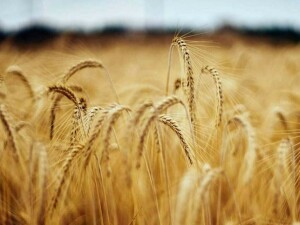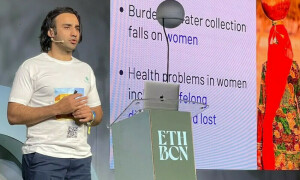Rafhan Maize Products Company Limited
Rafhan Maize Products Company Limited (PSX: RMPL) started its operations in Pakistan as a corn refining industry in 1953. Over the course of years, the company has grown into one of the biggest agro based industries of Pakistan. RMPL produces a variety of food ingredients and industrial products using maize as a basic raw material. RMPL turned into a public limited company in 1985.
Pattern of Shareholding

As of December 31, 2021, the company has a total of 9.2 million shares outstanding which are held by 972 shareholders. Ingredion Incorporated Chicago, USA holds 71 percent shares of RMPL. This is followed by local general public with a stake of 20 percent in the company. Directors, CEO, their spouse and minor children own around 6.5 percent shares of RMPL while Insurance companies account for 1.42 percent shares. The remaining shares are held by other categories of shareholders, each holding less than 1 percent shares.
Financial Performance (2018-22)
The topline of RMPL has been growing since 2018. The bottomline also follows except for a nosedive in 2022 where the company attained the highest topline growth in five years i.e. 38 percent year-on-year. Margins tell a different tale altogether. The margins that had been riding a downhill journey since 2018 abruptly increase and reach their highest level in 2020 and then again started dipping with 2022 showing the most constricted margins.

It is also to be noted that in 2020, RMPL posted the lowest topline growth in five years i.e. 2 percent year-on-year, yet managed to boast the strongest margins. On the contrary, in 2022, the company boasted the highest topline growth of five years, yet suffering from skimpy margins. Delving into the financial statements will reveal the underlying reasons.
In 2020, RMPL faced significant volumetric sales loss particularly due to subdued textile sector activity due to COVID-19 related lockdown and cancellation of export orders. Food segment performed better despite the closure of restaurants, schools, marriage halls etc as household demand spurred. Household demand of food, beverages, pharmaceuticals, processed food, condiments etc also stimulated the demand of RMPL’s food grade starches in those sectors. Lower off-take was offset by price increase which not only fetched a 2 percent year-on-year topline growth but also resulted in a GP margin of 27 percent in 2020 as against 25 percent in the previous year. Then other income turned out to be stunning, boasting a 36 percent year-on-year growth mainly on account on markup on deposits and staff loans. This pushed the OP margin to 24 percent in 2020 versus 22 percent in the previous year despite the fact that operating expenses and other expenses grew in line with inflation. Finance cost increased despite the fact that the discount rate was ticking down amidst COVID-19 to regain the lost momentum in economic activity. Growth in finance cost by 99 percent year-on-year was mainly on account of long-term refinancing attained from SBP for the payment of wages and salaries. Besides foreign exchange loss also fueled the growth of finance cost. The bottomline grew by 12 percent year-on-year in 2020 with NP margin clocking in at 17 percent as against 15 percent in 2019.

In 2021, RMPL’s topline grew by 19 percent year-on-year supported by both price and volumetric increase. However, high cost of production particularly because of high fuel and power cost as well as high prices of specific varieties of corn put GP margin under pressure which clocked in at 24 percent in 2021. OP margin also ticked down to 21 percent owing to inflationary trend which increased the operating expenses. Finance cost plunged by 1 percent year-on-year. While markup on short-term and long-term financing continued to grow, the absence of foreign exchange loss played its role in keeping the finance cost in check. NP margin for 2021 stood at 15 percent with a 3 percent year-on-year growth in net profit.

In 2022, RMPL boasted a 38 percent year-on-year growth in sales. While the detailed financial statements are not yet available to comprehend the underlying reason of the tremendous sales growth, the nine-monthly statements give a clear hint that both domestic and export sales performed well. Growth in export revenue was majorly driven by Pak Rupee devaluation which resulted in higher exchange gain for the company. In the domestic market, while textile as well as paper and corrugation sectors continued to grapple owing to floods, weakening exports, high energy cost, recession etc, food sector provided much needed growth momentum to RMPL. Moreover, improved pricing was also the reason behind the topline growth. However, high cost of production didn’t let RMPL sustain its GP margin which dropped to five-year low level of 20 percent. Finance cost grew by around 3.5 times in 2022 owing to high discount rate as well as high short-term running finances obtained during the year. The bottomline was shoved down by 1 percent year-on-year with NP margin landing at 11 percent in 2022.
Future Outlook

While import restrictions as well as high fuel and energy cost will keep the textile sector, the largest industrial consumer of RMPL under pressure, the company needs to stretch its arms in other sectors such as food industry, pharmaceutical, confectionary and animal nutrition to offset the low offtake in textile and paper sector. Moreover, expanding the international outreach will also benefit the company in the coming times as devaluation of Pak Rupee will not only render the company’s exports more competitive in the global market but will also fetch stunning exchange gains for the company.
























Comments
Comments are closed.